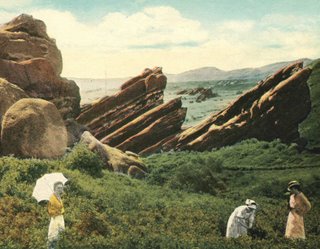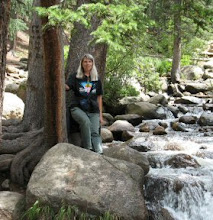How many more generations will pass before it will have become nearly impossible to be alone even for an hour, to see anywhere nature as she is without man’s improvements upon her? How long will it be before—what is perhaps worse yet—there is no quietness anywhere, no escape from the rumble and the crash, the clank and the screech which seem to be the inevitable accompaniment of technology? Whatever man does or produces, noise seems to be an unavoidable by-product. Perhaps he can, as he now tends to believe, do anything. But he cannot do it quietly.
Perhaps when the time comes that there is no more silence and no more aloneness, there will also be no longer anyone who wants to be alone.—Joseph Wood Krutch
In what concerns you much, do not think that you have companions; know that you are alone in the world.—Henry David Thoreau
Are "Romantic naturalists" an endangered species?

